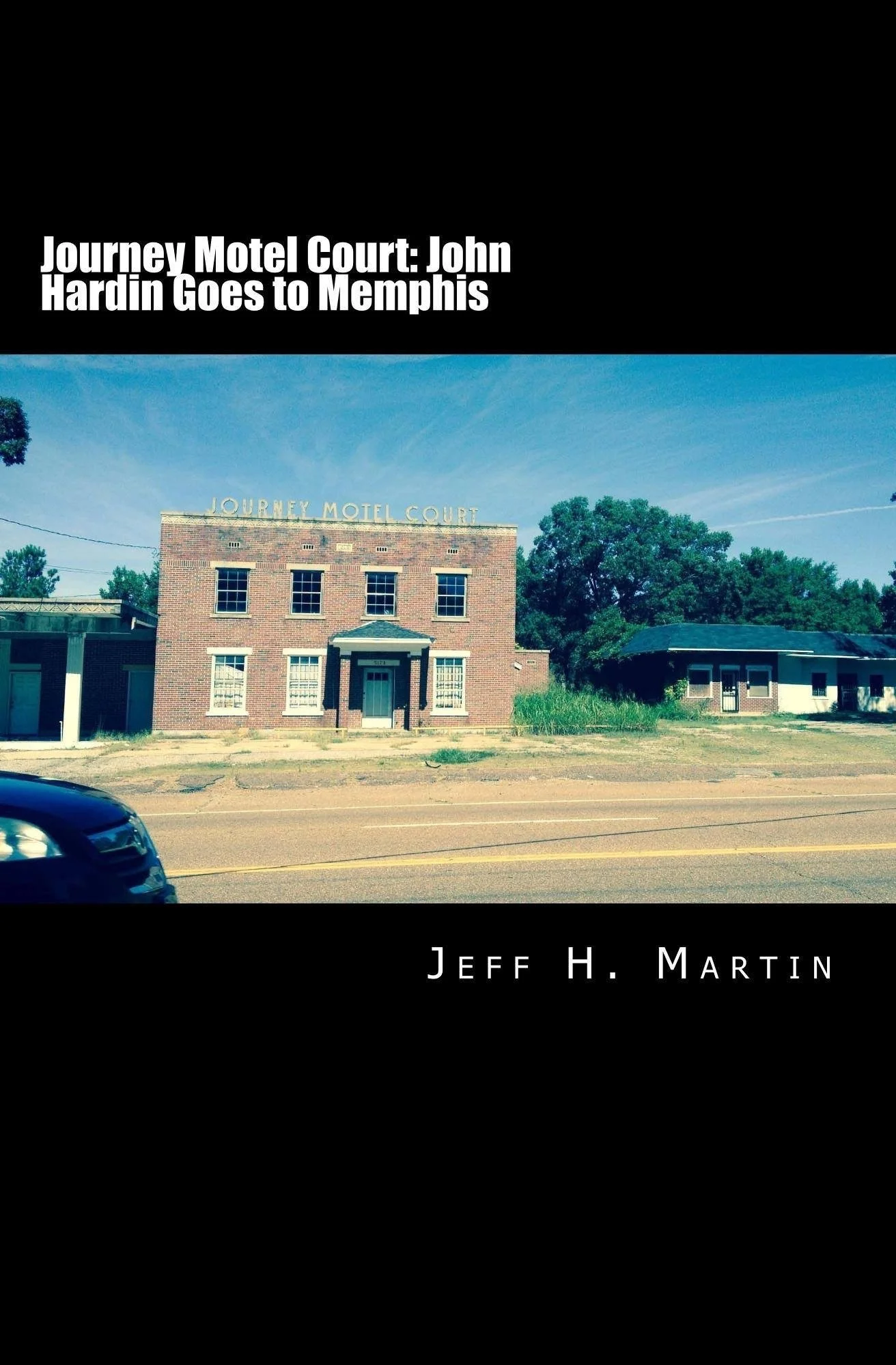“Tell,” the final book in Jeff Martin’s the Journals of John Hardin trilogy offers John Hardin as an aging, error prone time who attempts to go back to the year 1450 to find out what happened to the people who built the complex network of earthen mounds scattered throughout the Mississippi Valley.
Shockingly, Hardin encounters a vibrant community of misplaced Vikings and falls in love.
With these Norse, John finds lasting friendship, plus strange artifacts that challenge the tenets of mainstream archaeology.
On the fringes of Memphis in 1955, two men with rare gifts save a future civil rights icon from a gruesome death. "Journey Motel Court" is the second volume of Martin's the Journals of John Hardin series. Martin takes the reader from Memphis to the Midwest and back, then down to a curious motel just above the Mississippi state line where history is altered.
“New Africa Road” features a bright shining star in the universe of Martin’s sometimes eccentric characters. He is Michael Shanklin. a young evangelist with a startling new message that upsets the area’s power structure.
A dark comedy about a not so far into the future Mississippi Delta, “New Africa Road” is taut and literate. The novel shows the influence of Robert Heinlein, Walker Percy and Thomas Pynchon at their best.
Convicts, Cropdusters, and Catfish Ponds! “Mississippi Neon,” a thriller set in the Mississippi Delta of the late 1980's paints a portrait of a unique time (post Civil Rights movement) as the area adjusts to massive cultural upheaval. Martin says “Mississippi Neon,” with its vivid descriptions of life at a small market television station “sets the tone ”for his later work.
An ordinary man has an extraordinary gift, a gift that gets better as he gets older, but remains a mystery to him. He must use it to put his life back on track. It is his one chance for redemption. Along the way he meets a man who has a similar gift. They join forces to right wrongs and seek redemption and forgiveness.
In “1949,” Martin weaves together three compelling narratives.
The first belongs to James Trudell, a veteran of WWII and a survivor of the bloody Battle for Iwo Jima.
The second narrative in “1949”concerns Tandy Trudell. Tandy is antithetical to both James, his father, and Richie Hardin, his lifelong friend. Tandy is a straight arrow, small town real estate mogul. Throughout the book he has a dialogue with Richie Hardin, a failed writer/journalist, who escaped the Deep South. Richie’ narrative holds the three stories together.






In "Ragland," Billy Peeler gets into serious trouble in Memphis. He shoots and kills a black youth in self-defense. Due to the persistent protests of a black clergyman, the story spirals toward even more violence and suffering that threatens to set Memphis ablaze and destroy a one hundred and sixty year old dynasty. Is Billy Peeler’s Job-like predicament a sign of the times we live in, or retribution for the misdeeds of his forebearers?